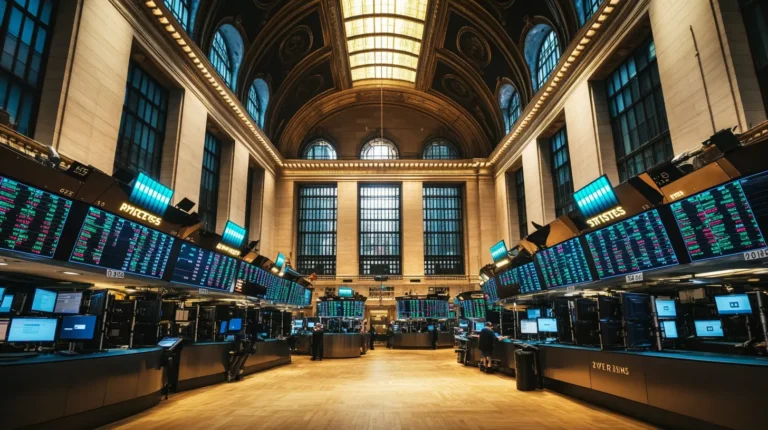In financial markets, two major players influence trading and liquidity: proprietary trading (prop trading) and market makers. While both deal with buying and selling assets, they serve different purposes. Firms like Citadel Securities and Virtu Financial operate in these spaces, handling billions in transactions daily.
Here’s a breakdown of what sets them apart—how they operate, their risks, compensation, and why one might be a better choice for traders.
Table of Contents
What is Proprietary Trading (Prop Trading)?
Prop trading firms use their own money to trade financial assets for profit. Unlike retail traders who invest personal funds, prop traders use company capital, often with access to advanced tools and strategies.
There are two types of prop firms:
- Hedge Funds & Private Trading Firms – Traders use firm capital, with earnings tied to their performance.
- Retail-Focused Prop Firms – These firms fund traders who then share profits while following strict risk rules.
Poor performance can lead to restrictions, but the upside is high—successful traders keep a large share of profits. Some well-known prop firms include FTMO, Real Trading, and City Traders Imperium.
What is Market Making?
Market makers provide liquidity by ensuring stocks, forex, and crypto can be traded smoothly. When you buy or sell a stock, a market maker is usually on the other side of the trade.
Market makers make money by capturing the bid-ask spread—the small difference between buying and selling prices. This business model is the reason commission-free brokers like Robinhood and Schwab can exist, thanks to Payment for Order Flow (PFOF).
Big names in market making include Citadel Securities, Virtu Financial, and Arca.
Key Differences Between Prop Trading and Market Making
| Aspect | Prop Trading | Market Making |
|---|---|---|
| Main Goal | Profit from market movements | Ensure liquidity and smooth trading |
| Risk | Market volatility and firm-imposed restrictions | Inventory management, competition, and regulatory scrutiny |
| Earnings | Performance-based (high-profit potential) | Bid-ask spreads and trade volume |
| Strategy | Analyzing trends to find profitable trades | Adjusting spreads to maintain liquidity |
| Regulation | Fewer restrictions | Heavily regulated |
What Do Prop Traders and Market Makers Have in Common?
- Liquidity Contribution – Market makers provide liquidity directly, while prop traders add it by actively trading.
- Profit-Driven – Both make money from trading but in different ways.
- Technology-Heavy – They rely on advanced algorithms and data analysis.
- Real-Time Market Involvement – Both react quickly to market changes.
Why Prop Trading is the Better Choice for Most Traders
- Lower Barriers to Entry – Anyone with trading experience can join a prop firm, while market making is dominated by large institutions.
- Fewer Regulatory Headaches – Market makers face stricter oversight, while prop firms operate with more freedom.
- Easier Transition for Retail Traders – If you already trade successfully, prop trading is a natural next step. Becoming a market maker requires significant capital and compliance expertise.
Final Thoughts
Both prop trading and market making are essential to financial markets. Market makers keep trading smooth, while prop traders focus on making money through strategic trades. For traders looking to profit with fewer barriers and more flexibility, prop trading is the better path.

